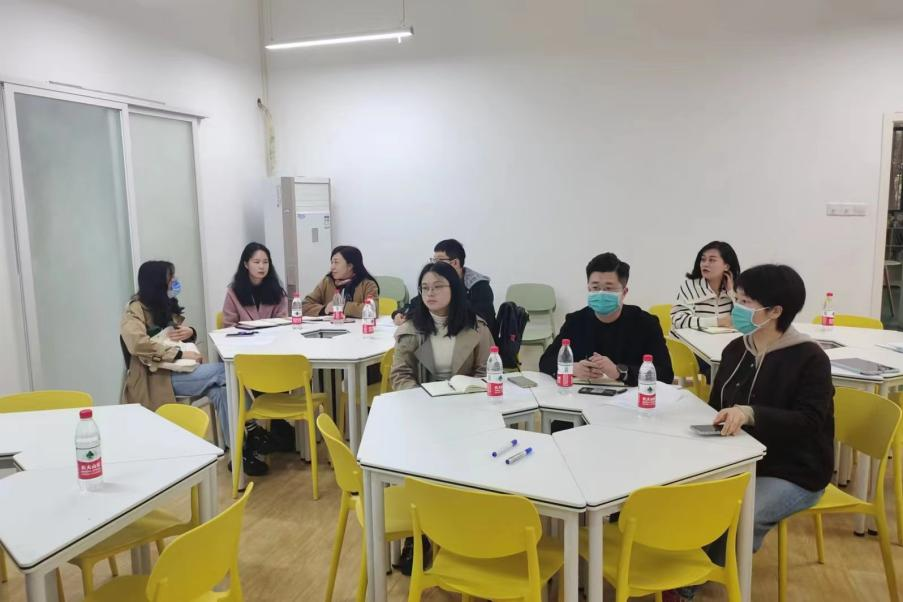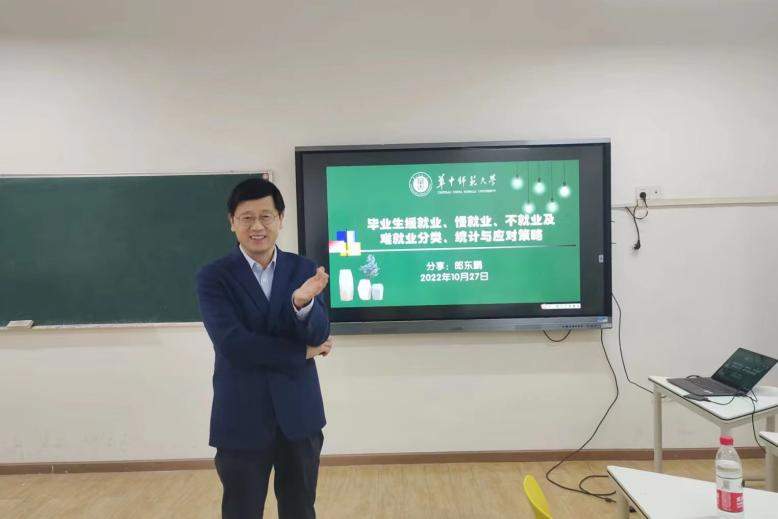On October 27, the employment guidance training meeting of the School of Public Administration, College of Urban and Environment Science and School of Life Sciences was held in Room 203 of the University Student Learning Development Center. Lang Dongpeng, deputy director of the Student Affairs Department of the Party Committee (chief researcher), gave a lecture on this training session. He focused on the analysis of the situation of the college's unemployed students, and put forward a series of constructive suggestions for promoting the employment of graduates of the three colleges in the next stage.

The carried out on three aspects. First is the employment classification. Second is the employment statistics in previous years. The las is the statistics and response methods. Initially, Lang Dongpeng analyzed the meaning of different types of employment in the "unemployed" student group. The common types of employment could be divided into four categories, namely, "slow employment", "later employment", "no employment" and "difficult employment". Among them, the first three types had different degrees of performance in terms of employment willingness and planning for future employment, but they all showed a weak attitude towards employment. For the "difficult to find employment" group, they are more likely referred to the students who have a strong desire for employment but fail to achieve employment due to some restrictions. Then Lang Dongpeng made a specific analysis of the employment statistics of our school in the past years. He took three colleges as the examples. After intervention, the ratio of passive unemployed students to active unemployed students had risen from 1:9.87 to 1:6.91, which showed the effectiveness of taking effective measures to actively intervene to help unemployed students. Finally, Lang Dongpeng put forward strategies to helping unemployed students. For active unemployed students, first clarify their employment intentions, and then observe their employment status. For the passive unemployed students, they should understand their difficulties and actively solve them.

In addition, Lang Dongpeng stressed that to help the unemployed group of graduates, we should pay attention to the specific situation and specific analysis. According to the "selective framework", different methods should be adopted for four types of unemployed graduates. First, we should do a good job in helping the "six difficulties" groups to prevent them from transforming into active employment. Second, strengthen the employment intention of "slow employment" graduates. The third is to ask more about the reasons for the graduates of "slow employment". Fourth, talk more about the meaning of life for "unemployed" graduates.
At present, the employment environment is constantly changing, so it is particularly important to do a good job in the employment of college graduates. The training will focus on the graduates of the three colleges and provide important guidance for the next stage to strengthen targeted guidance and services for unemployed students and promote full employment of graduates.
Source: Office of Student Affairs of CCNU
Author: Liu Feng
Translator: Shu Tianle
Date: November 10, 2022

